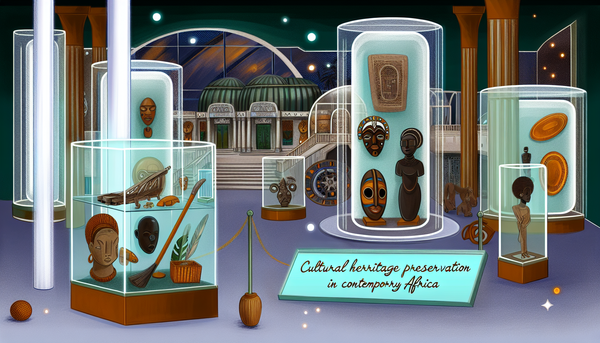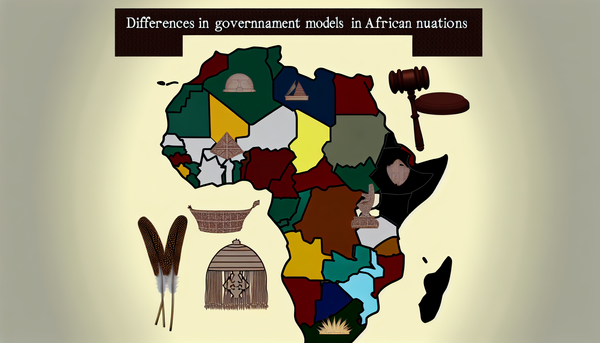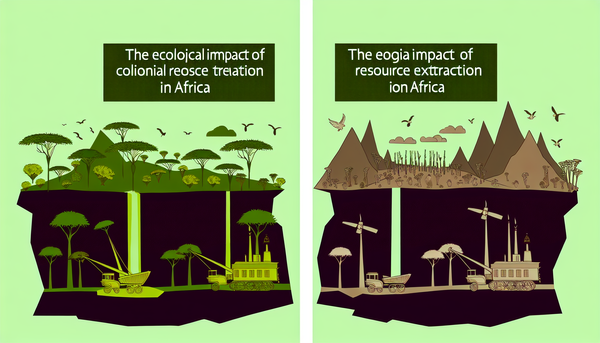Indigenous Knowledge Systems and Their Role in African History

Introduction to Indigenous Knowledge Systems
Indigenous Knowledge Systems (IKS) are frameworks of understanding and practices that have been developed by local communities over generations. These systems encompass the collective wisdom of various cultures, including their beliefs, traditions, rituals, and languages, which are deeply rooted in their historical experiences and environments. In Africa, IKS is especially significant as it reflects the diverse cultures and intricate relationships that indigenous peoples maintain with their land and resources.
Historically, IKS has played a critical role in the transmission of knowledge related to agriculture, medicine, and environmental stewardship. Communities relied on oral traditions, storytelling, and communal practices to pass down vital information about sustainable practices, resource management, and cultural values. This knowledge is not just academic; it is practical and often tailored to specific ecological conditions and societal contexts.
In today's rapidly evolving world, the relevance of Indigenous Knowledge Systems is becoming increasingly recognized. They are seen as valuable resources that can contribute to sustainable development, biodiversity conservation, and social resilience. Acknowledging and integrating IKS into modern frameworks is essential for fostering respect for cultural identities, enhancing community well-being, and addressing global challenges like climate change.
Pre-Colonial Education and Information Transfer
Before the advent of colonialism, African societies possessed rich and diverse educational systems rooted in their cultural contexts. Knowledge transfer occurred primarily through oral traditions, where storytelling, proverbs, and songs played a fundamental role in conveying wisdom, values, and life lessons. Elders occupied a revered position within these communities, acting as custodians of knowledge and teaching younger generations about customs, history, and skills necessary for daily life.
Education was not confined to formal settings; it was integrated into various aspects of community life. Practical skills, such as agriculture, crafting, and trade, were taught through hands-on experiences and mentorship. Rituals and ceremonies also served as vital educational moments, reinforcing social norms and collective identity. These practices created a robust framework for intergenerational knowledge transfer, ensuring cultural continuity.
The methodologies employed in pre-colonial education were highly adaptive, considering the unique ecological and social realities of each community. This adaptability allowed for the incorporation of local knowledge, serving specific needs and fostering resilience. The focus on holistic learning not only equipped individuals with necessary skills but also embedded a sense of belonging and responsibility within the community. As a result, these indigenous educational practices formed the backbone of societal cohesion and identity long before external influences emerged.
Medicinal Practices and Herbal Wisdom
In many African cultures, medicinal practices and herbal wisdom have been integral components of health and wellbeing for centuries. Indigenous healers, often referred to as traditional medicine practitioners, possess a deep understanding of local flora and fauna, using them to create remedies for various ailments. This extensive knowledge is rooted in centuries of empirical observations, communal experiences, and holistic approaches to health.
Herbal medicine is based on the belief that healing encompasses not just the physical body, but also the spiritual and emotional dimensions of a person. Traditional healing practices often involve rituals, prayers, and a strong connection to ancestral knowledge, recognizing that health is intertwined with one’s environment and community relationships. For many communities, these practices are not merely about treating symptoms; they emphasize prevention and promote overall wellness.
The pharmacological properties of many indigenous plants have gained recognition in modern medicine, as scientific research increasingly supports the efficacy of these traditional remedies. However, the importance of preserving this knowledge cannot be overstated. As globalization and environmental changes threaten biodiversity, the safeguarding of indigenous medicinal practices ensures the continuity of healthcare systems that have served communities for generations. Celebrating and integrating this wisdom can lead to a more holistic understanding of health in contemporary society.
Agricultural Techniques and Food Sovereignty
Agricultural techniques grounded in Indigenous Knowledge Systems have been crucial in promoting food sovereignty across African communities. This concept refers to the right of peoples to healthy and culturally appropriate food produced through ecologically sound and sustainable methods. For generations, African farmers have engaged in practices that reflect a profound relationship with the land, using traditional methods adapted to local climates and ecosystems.
Indigenous agricultural techniques often include crop rotation, intercropping, and agroforestry, which enhance soil fertility and biodiversity. These methods not only maximize yields but also improve resilience against climate variability and pests. Additionally, the cultivation of indigenous crops, such as millet, sorghum, and various beans, ensures dietary diversity and reflects cultural preferences, fostering a sense of identity among communities.
Food sovereignty empowers communities to reclaim control over their food systems, reducing dependency on industrial agricultural practices and commercial seeds that often compromise local varieties. By prioritizing and revitalizing indigenous agricultural knowledge, communities can enhance their self-sufficiency, maintain cultural heritage, and promote sustainability. In a world facing increasing food insecurity and environmental challenges, these traditional practices serve as invaluable resources that contribute to resilient food systems and the preservation of cultural identity.
Environmental Management and Sustainable Practices
Indigenous Knowledge Systems have long been foundational in fostering environmental management and sustainable practices across Africa. Many indigenous communities possess a profound understanding of their local ecosystems, developed through generations of interaction with their natural surroundings. This intimate relationship empowers them to manage resources in ways that promote ecological balance and biodiversity.
Traditional practices such as controlled burning, agroecology, and permaculture reflect sustainable land use and resource management strategies. By using methods tailored to specific environmental conditions, indigenous peoples maintain the health of ecosystems while ensuring that their communities thrive. For instance, traditional agroforestry systems combine agriculture and forestry, creating habitats that support a myriad of plant and animal species, enhancing both food security and ecological resilience.
Additionally, indigenous communities often prioritize communal decision-making processes in resource management, reinforcing the importance of collective stewardship. This inclusive approach to environmental governance contrasts sharply with top-down models that can overlook local knowledge and priorities.
As contemporary challenges like climate change and habitat degradation threaten ecosystems worldwide, the insights derived from Indigenous Knowledge Systems offer crucial guidance for sustainable practices. Recognizing and integrating these traditional approaches into modern environmental strategies can lead to more effective and inclusive solutions, promoting a healthier planet for future generations.
Ceremonies and Socio-Cultural Functions
Ceremonies and socio-cultural functions play a vital role in the life of indigenous communities, serving as platforms for the expression of identity, tradition, and community cohesion. These events are often steeped in cultural significance, acting as rituals that connect individuals with their heritage, ancestors, and the natural world. From birth rites and initiation ceremonies to harvest festivals and marriage celebrations, these rituals encompass a range of important life stages and communal milestones.
During these ceremonies, art forms such as music, dance, storytelling, and traditional crafts are showcased, reinforcing cultural values and fostering a sense of belonging. Participation in these activities allows community members to share knowledge and cultivate social bonds, enhancing mutual support and cooperation. Moreover, the knowledge passed down through generations during these gatherings often includes lessons on environmental stewardship, agricultural practices, and medicinal wisdom, linking cultural practices with practical knowledge.
In a rapidly changing world, the preservation and revitalization of such ceremonies are essential for safeguarding cultural identity and promoting resilience. By celebrating their traditions, indigenous communities reaffirm their connection to their land and their history, ensuring that their rich heritage endures for future generations. Ceremonies thus serve not only as celebrations of life but also as vital expressions of collective identity and continuity.
Contemporary Relevance and Integrative Policies
The contemporary relevance of Indigenous Knowledge Systems in today's world cannot be overstated, particularly in addressing pressing global challenges. As issues like climate change, food insecurity, and biodiversity loss increasingly threaten ecosystems and livelihoods, integrating indigenous practices into national and global policies offers innovative solutions rooted in sustainability and resilience.
Modern research has increasingly highlighted the importance of these systems in land management, conservation, and natural resource governance. By recognizing the value of traditional ecological knowledge, policymakers can develop more effective strategies that honor the wisdom of indigenous communities while promoting environmental stewardship. Integrative policies that incorporate indigenous voices foster collaboration and empower local populations, ensuring that their rights and knowledge are respected.
Moreover, embracing a holistic approach that combines scientific research with traditional practices can lead to more comprehensive frameworks for sustainable development. This is particularly important in sectors such as agriculture, medicine, and conservation, where diverse knowledge bases can lead to innovative practices and enhanced resilience.
As nations strive for sustainable development and equitable growth, the acknowledgement and integration of Indigenous Knowledge Systems within policy frameworks are essential, not only for environmental health but also for cultural preservation and social justice. This collaborative approach promises a more inclusive future, respectful of both heritage and sustainability.



